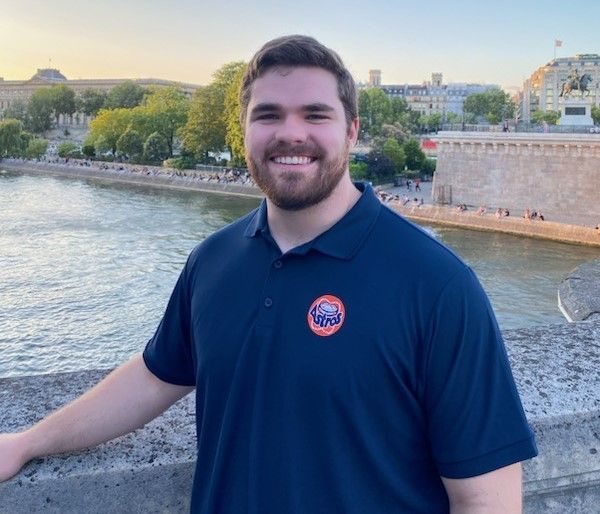You can usually spot Barclay Briggs ‘24, somewhere outside. Whether it’s on the gridiron with his fellow Davidson College football teammates, or on the water hauling in his next big catch, Barclay is a true outdoorsman. This fall however, Barclay has found himself indoors leading a new student group dedicated to ideological diversity and a lively, and fearless freedom of debate and deliberation: the Davidson Free Speech Alliance.
Student Spotlight: Barclay Briggs '24
Student Spotlight:
Your gift supports students like Barclay

Hailing from Houston, Texas, Barclay’s love for nature mirrors his commitment to the open exchange of ideas, where different perspectives can flourish just like the diverse landscapes he enjoys. Over the course of his Davidson career, Barclay has felt strongly about improving the state of intellectual diversity, and civil discourse on campus. He explained that these feelings compelled him to launch DFSA this year: “It is a terrible feeling to sit in a class and not feel comfortable voicing an opinion that may be controversial, and that can’t be the standard. The standard must be free inquiry, free expression, and free discourse.” Barclay quickly discovered that he was far from alone on campus, as almost overnight, the DFSA ranks swelled to over fifty members.
Barclay and the DFSA have partnered with the Davidsonians for Freedom of Thought and Discourse to launch a variety of programs this year, aimed at enhancing and supporting a positive free speech culture on Davidson’s campus. “DFTD supports me and DFSA by providing resources, funding, knowledge, and experience in free-speech advocacy. Without them, DFSA leadership would have a very tough time bringing qualified speakers to campus, and we would severely lack the funding to put on the events we have planned. I am thankful for DFTD’s guidance, and I look forward to their continued support of free speech on Davidson’s campus,” Barclay explains.
As Barclay approaches his post-Davidson plans, he will return to Texas to work for a petrochemical trading and marketing firm. But his dedication to free speech and ideological diversity will continue to inspire positive change on his college campus and beyond.
Join Barclay Briggs in supporting the cause of free speech and ideological diversity. Your gift helps to fund essential programs, speakers, and resources that make a difference in the lives of students like Barclay and ensure that every voice is heard.




